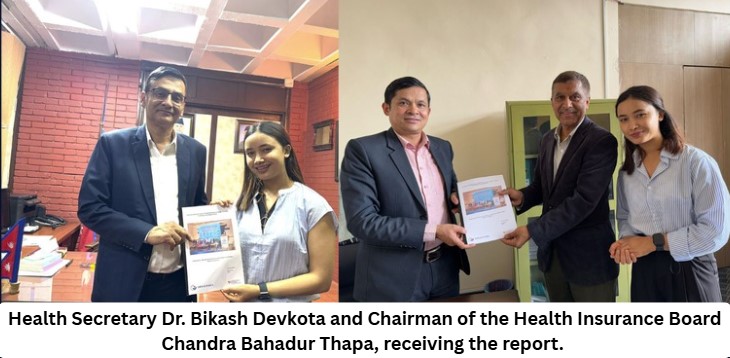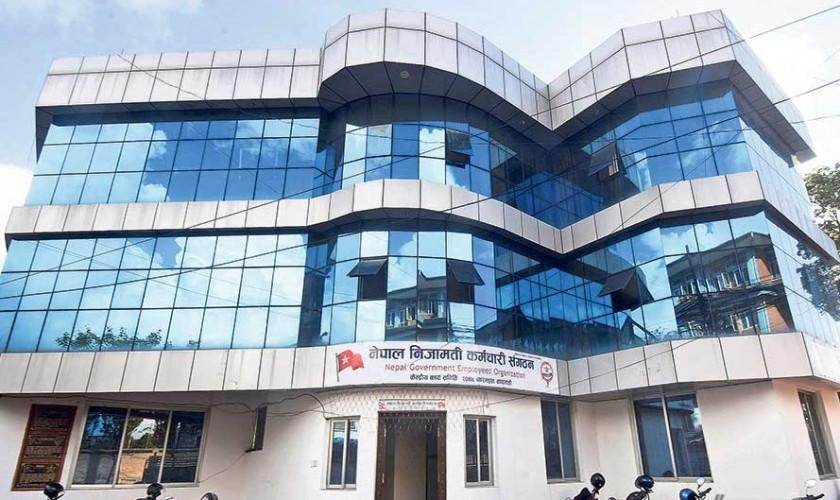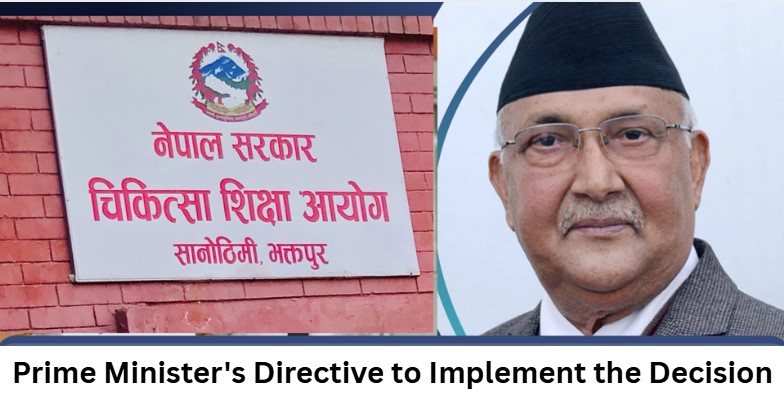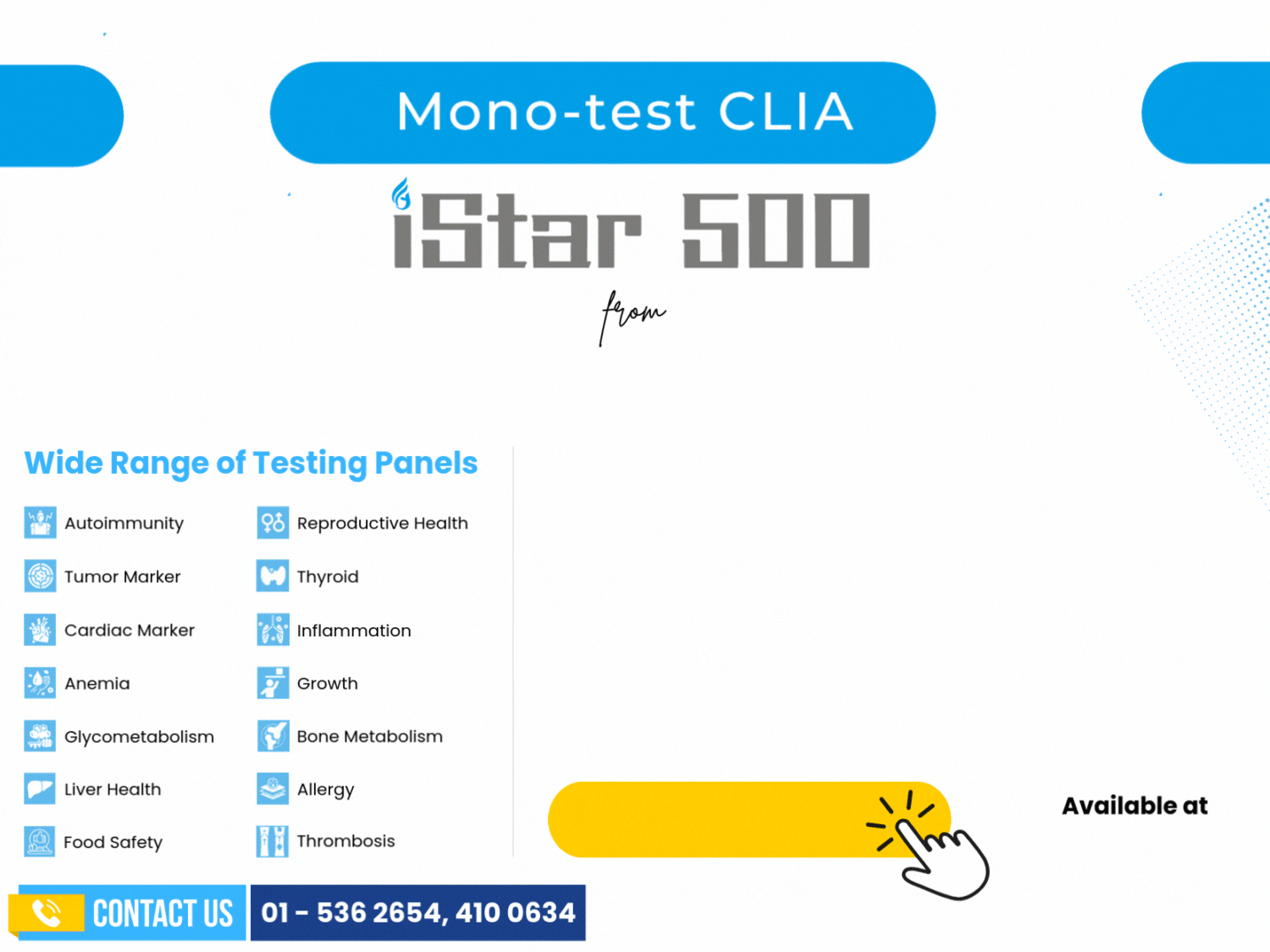
Kathmandu— The High-Level Economic Reform Recommendation Commission, led by former Finance Secretary Rameshwor Khanal, has submitted its report, which includes several suggestions to improve the health sector in Nepal. One key recommendation is to extend the mandatory service period for doctors who study under government scholarships from the current two years to five years.
Currently, scholarship doctors are required to serve for two years within Nepal. The commission has outlined 11 key recommendations for health sector reform, including a proposal under point number 5, which notes that most doctors registered with the Medical Council tend to migrate abroad, thereby further reducing the number of effective physicians available in the country.
The report states, “To create an environment for doctors to stay in the country, it is necessary to regulate private healthcare institutions that reportedly pay below the government salary scale. Continuous monitoring should be ensured so that salaries do not fall below the government standard.”
The major health sector reform suggestions are as follows:
Increase Doctor Production: Nepal has a low doctor-to-population ratio. Health policy should prioritize the production of more doctors.
Develop Hospitals Outside Bagmati: Except for the Bagmati Province, other provinces lack well-equipped hospitals. Patients often die before they can reach Kathmandu for treatment. Therefore, one well-equipped hospital should be established in each of the remaining six provinces.
Reassess Local Hospital Policy: The government has a policy to establish basic hospitals at the local level with 5, 10, or 15 beds. However, in some municipalities like Tilottama, a 15-bed hospital exists, yet patients prefer nearby well-equipped hospitals in Butwal. In such areas where quality hospitals are already accessible, the current policy should be reviewed.
Promote Traditional and Ayurvedic Medicine: Nepal should develop natural and Ayurvedic medical systems alongside modern healthcare. These traditional methods not only preserve cultural practices but are also effective in treating certain illnesses.
Prevent Medical Brain Drain: Most doctors registered with the Medical Council tend to leave the country, worsening the shortage of skilled medical professionals. To stop this trend, legal provisions should be introduced to mandate a five-year service period in Nepal for those studying under government or private scholarships. Additionally, ensure private healthcare institutions do not pay below the government-set salary scale.
Align Investment with Returns in Health Education: Currently, the investment in medical education does not align with the returns. To address this, consider reducing tuition fees, increasing salaries, or adopting both measures.
Prioritize Remote Workers for Promotion: While promoting or offering permanent positions to health technicians, those who have served in remote areas should be given priority.
Specialized Procurement Body for Medical Equipment: Medical equipment procurement is frequently embroiled in controversy. A separate expert body should be established to handle such purchases.
Streamline Health Insurance: Nepal’s health insurance system is fragmented. A one-door policy should be implemented. Those earning below a certain income threshold should be exempt from insurance premiums but must pay social security tax. Those above the threshold should pay both premiums and taxes.
Merit-Based Medical Scholarships: Medical scholarships should be awarded based solely on merit, abolishing the current quota system. This would help produce competent doctors based on intellectual capability.
Mandatory Referral System: Implement a compulsory referral system from local to provincial and from provincial to federal hospitals, with timely revisions and effective implementation of existing guidelines.
swasthyaadmin
Published: April 11, 2025









